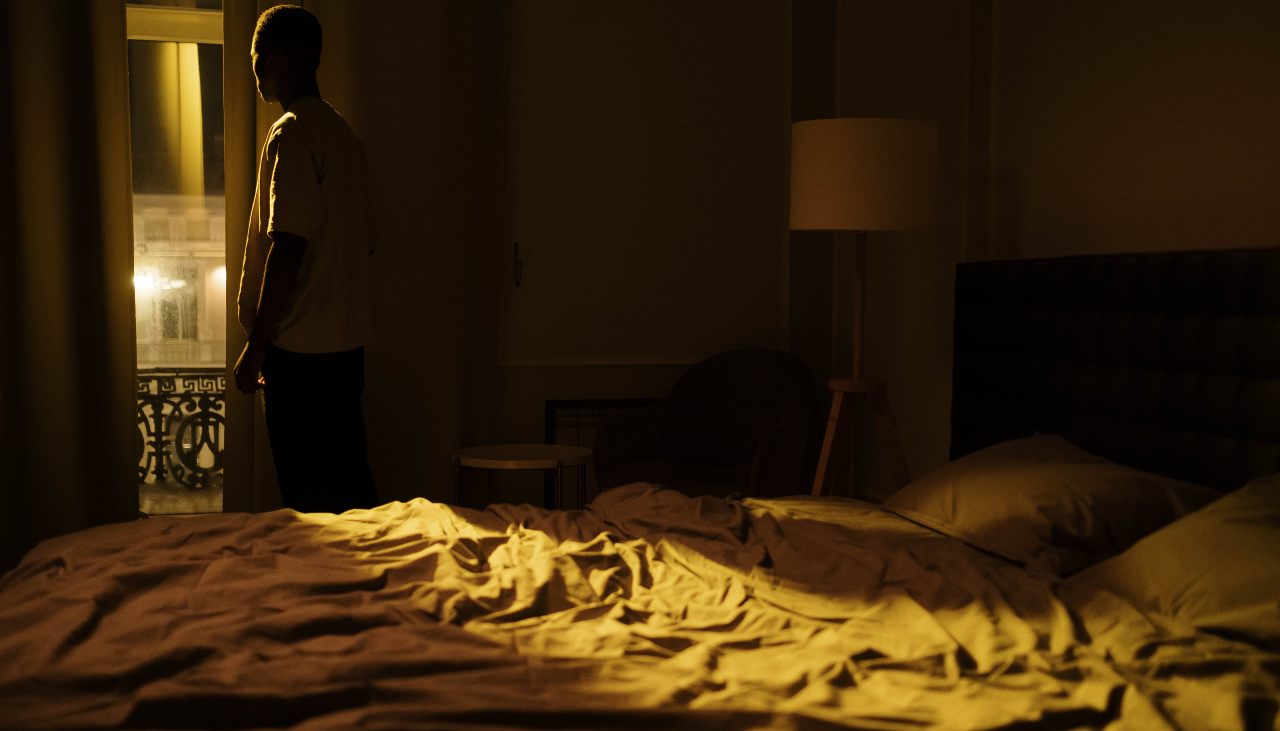Finally, expert neurology care at your fingertips
Neura Health is a comprehensive virtual neurology clinic. Meet with a neurology specialist via video appointment, and get treatment from home.

There are various types of sleep disorders that we treat here at Neura Health. Here is an overview of the five main types of sleep disorders.
Insomnia refers to a variety of sleep disorders in which the individual struggles with the ability to fall asleep or stay asleep.
Components of insomnia include persistent sleep difficulty (falling asleep, waking up several times during the night, or waking up too early) despite adequate sleep opportunity. As a result, the individual suffers with daytime dysfunction (such as fatigue, decreased mood or irritability, malaise, and cognitive impairment).
Insomnia can be divided between chronic insomnia disorder (>3 months) and short-term insomnia disorder.
Causes can include inadequate sleep hygiene, behavioral insomnia (of childhood), mental disorders, medications, medical conditions (including sleep-related disorders), drug or substance misuse.
Treatment includes cognitive behavioral therapy for insomnia (CBT-I), stimulus control, sleep restriction therapy, relaxation therapy, sleep hygiene, biofeedback, mindfulness therapies, and medication on select occasions based on provider judgment.
Obstructive sleep apnea is a sleep-related breathing disorder that typically involves snoring, breath holding, gasping, daytime sleepiness, nonrestorative sleep, fatigue, or insomnia symptoms. OSA is most common in individuals with reduced airway space of the upper airway due to enlarged soft tissues (tongue and soft) or craniofacial anatomy or both.
OSA is a heritable condition with factors that may increase OSA prevalence, including age, excessive body weight, and male sex.
Treatment for OSA includes continuous positive airway pressure (also known as a CPAP machine which is the gold standard treatment), dental appliance, weight loss (which may reduce the severity of OSA), or hypoglossal nerve stimulator (HNS) which is a surgically implanted device - mostly for patients who cannot tolerate CPAP treatment.
Restless Leg Syndrome is a neurological sleep disorder in which the patient experiences intense and uncomfortable crawling or creeping sensations in their legs that is usually worse during periods of rest in the evening and after laying down to sleep at night. The symptoms are often relieved by getting up and walking and moving the legs.
Common causes of RLS include low iron levels, diabetes, kidney failure, pregnancy, and certain medications.
Treatment for RLS may include iron supplementation, prescription medication, and soft tissue modalities (stretching, massage, etc.)
Parasomnias are a type of sleep disorder in which the individual experiences unwanted events while falling asleep, during sleep, or while waking up from sleep. Examples include sleep terrors, sleepwalking, sleep paralysis, sleep-related eating disorders, nightmares, bedwetting, hallucinations, and others.
Parasomnias are caused by sleep deprivation, irregular sleep-wake schedules (jet lag or shift work), certain medications (antidepressants, sleep aids, antipsychotics, blood pressure meds, anti-seizure meds, asthma/allergy meds, and antibiotics), sleep disorders, stress, psychiatric disease, and others.
Treatment for parasomnias includes identifying underlying contributing causes and providing treatment as indicated. Additionally, adequate sleep-hygiene should be improved as needed, medication management as needed, and initiating safety precautions.
Hypersomnias are a group of sleep disorders which cause a person to experience excessive sleepiness. Examples include narcolepsy, long sleeper syndrome, idiopathic hypersomnia, insufficient sleep syndrome, and Klein-Levin syndrome. The individual may feel extreme sleepiness or even fall asleep at times that are inconvenient and even dangerous.
Causes include genetic predisposition (for narcolepsy) but much of the causes of hypersomnia disorders remains poorly understood with more research needing to be done.
Treatment focuses on first identifying the particular type of hypersomnia which may include sleep studies (polysomnagraphy or multiple sleep latency test) and then moving towards specific treatment options which can include stimulant medications and lifestyle changes related to sleep hygiene.
If you would like to talk with a sleep specialist about your sleep issues and get treatment, you can start your Neura membership trial here.
References:
American Academy of Sleep Medicine. International Classification of Sleep Disorders. 3rd ed. Darien, IL: American Academy of Sleep Medicine; 2014
Neura Health is a comprehensive virtual neurology clinic. Meet with a neurology specialist via video appointment, and get treatment from home.
.png)